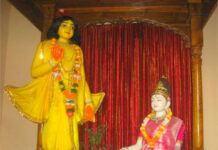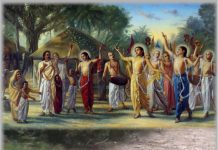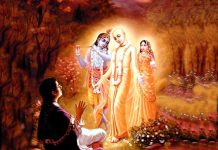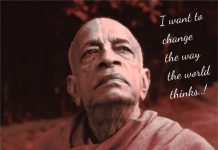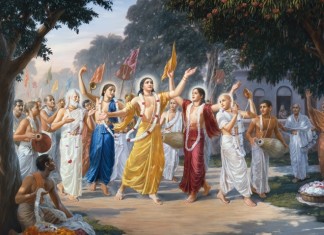A recently published news story quickly caught my attention. It suggested that there are principally four types of personalities. After carrying out a research project of its own style, researchers in Spain have concluded that the four distinct personality types are: Optimistic, Pessimistic, Envious, and Trusting. They also suggested there is a fifth one but the computer algorithm they used couldn’t accurately identify it. What I found interesting was the concept of four types of personalities, something that is elaborately and authoritatively explained in the Vedic scriptures as Varnashrama dharma.
“A study on human behavior has revealed that 90% of the population can be classified into four basic personality types: Optimistic, Pessimistic, Trusting and Envious. However, the latter of the four types, Envious, is the most common, with 30% compared to 20% for each of the other groups. This is one of the main conclusions of a study recently published in the journal, Science Advances by researchers from Universidad Carlos III de Madrid, together with colleagues from the universities of Barcelona, Rovira i Virgili and Zaragoza. The study analyzed the responses of 541 volunteers to hundreds of social dilemmas, with options leading to collaboration or conflict with others, based on individual or collective interests.” (A study on human behavior has identified four basic personality types)

If you know about Varnashrama dharma you may immediately react saying this findings has hardly anything to do with Varnashrama; more specifically the four varnas. This is largely true in that Varnashrama dharma talks of four distinct types of people with specific sets of qualities while this research talks only about total four qualities. This in itself is a huge difference and shows how Varnashrama dharma is much more scientific, versatile and meaningful. The other reason that makes this research practically worthless is, as usual, their conclusion is based on a survey conducted on mere 541 volunteers out of more than a billion on the planet.
However, there is a reason to talk about this particular research; four types of personalities. By personality, they are basically referring to class of people as qualities or attitude is what defines a person’s character. Obviously the four qualities they have come up with, namely, Optimistic, Pessimistic, Trusting and Envious, are among the characteristics of human beings but to divide human temperaments into this four is too limiting and far from perceivable reality.
Lord Krishna says in Bhagavad Gita 4.13 that He, the Supreme Lord, has divided human society in four varnas and four ashramas according to their qualities and work.
chatur-varnyam maya srstam guna-karma-vibhagasah
tasya kartaram api mam viddhy akartaram avyayam
TRANSLATION: According to the three modes of material nature and the work ascribed to them, the four divisions of human society were created by Me. And, although I am the creator of this system, you should know that I am yet the non-doer, being unchangeable. (B.G. 4.13).
In verse 18.41, Lord Krishna again speaks about this:
brahmana-ksatriya-visham shudranam cha paran-tapa
karmani pravibhaktani svabhava-prabhavair gunaiḥ
TRANSLATION: Brahmaṇas, kṣatriyas, vaishyas and shudras are distinguished by the qualities born of their own natures in accordance with the material modes, O chastiser of the enemy.
Although modern society tends to reject Varnashrama dharma in the name of rejecting caste system based on birthrights, Varnashrama dharma is actually based on guna (qualities) and karma (work) as mentioned in the verse above. Besides, simply by passing legislation we cannot change the laws of Nature. Accept or not, the four varnas, or the four fundamental classes of people; brahmanas (intelligent class), kshatriya (administrative class), vaishya (mercantile class), and shudra (working class) always exist regardless of what we name it. Similarly the four ashramas: brahmachari (students), grihastha, (householders), vanaprastha (retired), and sannyasa (renunciants) always exist.
Moreover, Bhagavad Gita clearly names the qualities with which each of the four classes of people operate:
“Peacefulness, self-control, austerity, purity, tolerance, honesty, knowledge, wisdom and religiousness—these are the natural qualities by which the brahmanas work. Heroism, power, determination, resourcefulness, courage in battle, generosity and leadership are the natural qualities of work for the ksatriyas. Farming, cow protection and business are the natural work for the vaishyas, and for the shudras there is labor and service to others.” (B.G. 14.42-44)
Just as modern science is slowly getting closer to Vedic science and realizing that, apart from ours, there are other civilizations in the universe, researchers in other faculties have also begun to understand that human psychology, astrology, medical science and even military arts explained in Vedic scriptures is not only authentic but far more superior to what we have today. It is only the good fortune of mankind that the original teachings of Vedic scriptures is still available to us. The fact that many researchers and psychologists are lately talking about four types of personalities is a step forward in understanding Vedic concept of four classes of human beings.


